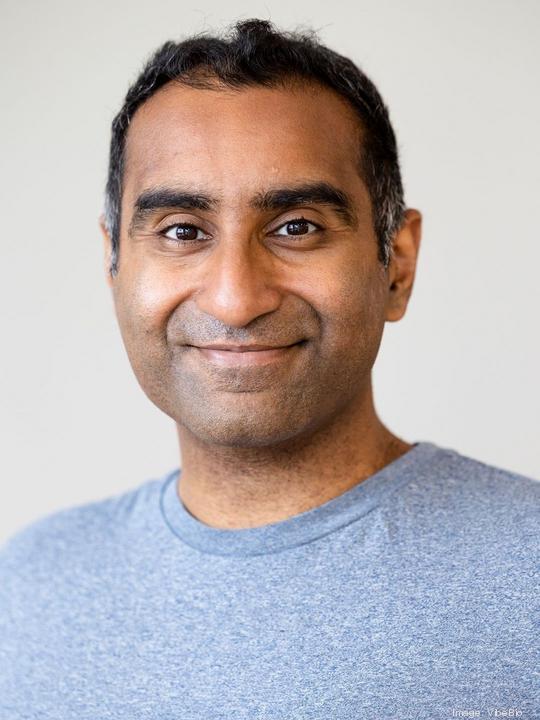
What do former Bolt CEO Ryan Breslow and former federal inmate Martin Shkreli have in common?
They’ve both recently started Web3 biotech companies. It’s a fairly new and perhaps controversial market segment that is attempting to combine the blockchain, cryptocurrencies, NFTs and a general ethos of decentralization with the biotech industry and scientific research more broadly.
Web3 biotechs offer an enticing opportunity to bring stakeholders like patients of rare diseases and amateur drug-finding sleuths together virtually, while leveraging the financial incentives of cryptocurrency to produce positive outcomes like funding drug development research. Only time will tell if the methodology proves effective — or, like many cryptocurrency-related projects, run afoul of financial regulators.
DAO or no DAO
Many companies in the Web3 biotech space are just getting off the ground, while some cannot even be considered companies in the traditional sense. Most are organized through DAOs (decentralized autonomous organizations) that allow disparate people to join an organization by buying tokens, giving them a share of voting rights in all the organization’s decisions. At their best, DAOs are non-hierarchical, community-driven passion projects where like-minded individuals achieve a common goal similar to an open source software project. At their worst, DAOs are a way to sell unregistered securities.
And while nascent and fringe, the Web3 biotech space is beginning to attract a whiff of cautious interest from VCs and the pharmaceutical industry.
Pfizer recently purchased $500,000 in tokens into VitaDAO, a DAO run by the German Web3 biotech Molecule that funds research into treatments that extend human lifespans. The buy-in gives Pfizer significant voting rights into what research to fund. When the research bears fruit, the resulting intellectual property is owned by the DAO.
Love Health, founded by Breslow who left the job of Bolt CEO after a Twitter rant about mob-like behavior in Silicon Valley, is preparing to launch a similar DAO focused on alternative treatments. It recently raised $7 million in venture capital and is apparently undergoing an acquisition strategy. According to court filings, the company tried and failed to invest in and then acquire the flagging genomic sequencing company Genapsys during its bankruptcy proceedings.
Shkreli’s Druglike has raised $3 million from undisclosed investors and takes a different tack. It operates an online drug discovery platform where users can use the service and only pay for the computing power required to make the calculations, which is purchased in cryptocurrency from a decentralized network of computers.
“A lot of these tools are behind the walls of Big Pharma, and have really expensive licenses, like our biggest competitor is about $50,000 for one user, for one chemist, for the whole year,” Shkreli said. “My mission is to have any 15-year-old kid who was precocious and wanted to study this stuff do it from his or her desktop.”
But don’t call the venture a pharmaceutical company. Earlier this year a federal judge banned Shkreli for life from participating in the drug industry. He says the drugs orders only apply to companies that make actual drugs, while Druglike is just a software company.
“We have no designs on making actual medicine. If I did it would be called a pharmaceutical company,” Shkreli said. “I actually can do a pharmaceutical company outside of the U.S. … and I’m free to start a drug company in Switzerland, which I have done before.”
The space has also attracted the attention of early stage VCs such as Initialized Capital, which recently led a $12 million seed funding round of VibeBio, a Cambridge, Massachusetts-based company operating a DAO that funds drug development of rare diseases by organizing patient groups. The funding was conducted solely by buying tokens in the DAO.
Parul Singh, a partner at Initialized, said the firm’s portfolio already consisted heavily of both health care and crypto companies, so it seemed logical to combine the two.
“The principle of decentralization, broadly, we’re seeing is affecting all sectors, and this was a use case that we thought was very specific in health care and very interesting,” she said. “I’m a former software developer and have seen open-source software going from being this very niche area 15 years ago to now like 55% of enterprise software. I think we’re at that same early stage of that kind of movement with science.”
Security risk
Despite their novel approach to scientific inquiry, these DAOs face some of the same challenges as other cryptocurrency-based projects, namely their approach to securitization.
The Securities and Exchange Commission may consider these DAO token sales to be unregistered securities and impose heavy fines and perhaps disband entirely.
And the approach has no shortage of critics.
“The whole point of ‘Web3’ on these companies is to execute the ‘gig economy of securities fraud’ — issue a token and sell it to suckers,” Nicolas Weaver, who is a researcher at the International Computer Science Institute and prominent critic of cryptocurrency and web3, told me in an email. “The token has no value except for its ability to loot the public.”
VibeBio founder Alok Tayi says he has considered the securitization issue when setting up the DAO and feels confident the company is playing by the rules by not sharing profits with the token holders. VibeBio has set up a nonprofit foundation that will own and handle the transfers of any IP generated through its funding and the proceeds of the sale or royalties will go back to the DAO treasury to reinvest in new research.
“In our model, the governance token, I think of it kind of like season tickets, where it gives everyone the opportunity to see the show, enjoy the vibes, put forth proposals that help provide a voice to individuals and communities,” Tayi said. “But the token itself does not confer explicit economic rights to the treasury or any individual benefits, but as you can imagine, like for season tickets, if the team does well, there’s an opportunity for those individuals to sell some of those tickets downstream.”
Here we go again
About five years ago before DAOs were popular, there was an early wave of companies attempting to merge blockchain and biotecnology, but most did not survive.
One of the few modest successes was San Francisco-based Nebula Genomics that was founded in 2016 and acquired by ProPhase Labs in 2021 for $14.6 million. It provides full sequencing genetic tests stored encrypted on the blockchain so only the patient has access to the results.
It was emblematic of many of the blockchain-based biotech companies of the time that were looking for ways to decentralize medical data by using blockchains, says its co-founder Kamal Obbad.
The company originally had plans to launch tokens and store genomic sequencing in NFTs, but scaled back its crypto-heavy focus to build a sustainable business around its core product.
As for the next tranche of companies blending crypto and biotechnology, Obbad says he’s cautiously optimistic.
“I like the idea around crowdfunding patient-centric research,” he said. “There’s so many questions around if crypto is actually a value add or a distraction, but the premise of citizen-driven research and specifically patient-driven research, I think is really compelling.”




